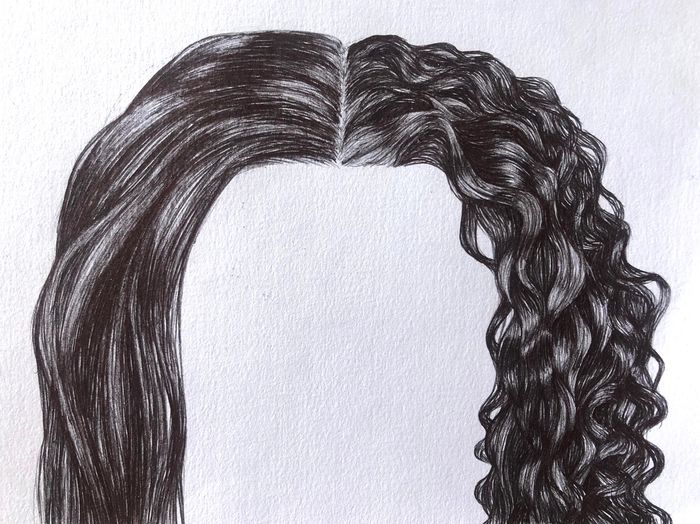A letter to my Headmaster on racism
“For me, there was a distinct sense of not-belonging” writes Anjali Gupta on her experience of race at school
Content note: racism, micro-aggressions, racial slurs

Dear Headmaster,
I was a mixed-race student, half English and half Indian, at your school. I write to you during a huge moment for racial justice focussed on black lives and police brutality. While these experiences are more urgent and incomparable to my own interactions with racism, they have created a space for reflection and discussion with fellow school alumni of colour.
To preface this letter, I’d like to acknowledge that overall my time at school was positive, aided by dedicated teachers and classmates who were primarily supportive and enthusiastic. However, I can only speak from my own experiences, and I was lucky; others have suffered far more. Systemic racism is bred in institutions such as the school, so it is here where it must be confronted.
For me, there was a distinct sense of not-belonging. It seemed that white students had a fixation on race, especially when we were younger. Racist language and jokes were not only bandied about, but defended, and some teachers were involved too. Another mixed-race student informed me that he would look forward to parent’s evening, when his teachers would see that his mother was white and start to respect him more. Personally, I will never forget when, after I won a UK politics quiz, another student loudly complained that I “was not even British”, and my form tutor uncomfortably changed the subject. Here, I was publicly insulted, and the actions of the perpetrator were sanctioned by the authority-figure. What message did that send to my classmates?
I also remember having to argue to a friend that the word P*ki was racist; her refusal to accept that it was far more than a mere abbreviation (like the word ‘Aussie’) not only frustrated me, but undermined my experience - my discomfort was insufficient to convince her that she was wrong. My brother also had to argue the same to a class of 30 other students. It should not fall to people of colour to endure this language and to have to educate white people, especially in an institution designed to do precisely that.
These are overt and memorable, but smaller-scale microaggressions shaped my school experience too. My diverse school-bus, travelling out of London, was carelessly labelled “the brown bus”. To have my oasis of acceptance dismissed in such a way reinforced the thematic message of adolescence that is amplified for minorities: ‘you do not belong’. The bus literally ‘took us back to where we came from’ at the end of each day, and I remember feeling happy when my white friends would travel back to mine on it - for one hour they’d be the odd one out, and feel how I did all day, every day.
“I recall enduring a Geography lesson on the merits of colonialism.”
Additionally, I am aware that teachers put a lot of thought into their curriculums, and ‘inclusion’ is at the top of their agenda. But this needs to be enabled by institutions. I recall enduring a Geography lesson on the merits of colonialism. The language to defend my Indian cultural history was never taught to me, and, having not been given to tools to articulate myself, I could only watch as my white counterparts were taught about India’s amazing, British-built railways.
Your school is successful because it has many economically privileged students. But most of the students also have white privilege that they were never educated about. I hope you can recognise that these actions I have outlined above are not hateful but are racist in their ignorance. Their cumulative effect was powerful enough to marr the memories I hold of my formative years, despite the fact I had many great experiences too.
I know that you are committed to equality, but please ensure that your words translate to action. I am writing to articulate my own experience and implore your staff to do better. They should be confident in sticking up for students of colour and given the right tools to do so; for me, it was when people in authority remained silent that feelings of otherness were most deeply enforced. These conversations are awkward to have, but I emphasise that language needs to be utilised and understood properly if any change is to come about. The above examples are only a few out of many stories that I have – but the most shocking are ones regarding slurs. Staff need to have a zero-tolerance stance when it comes to such overtly offensive language.
I do not purport to be a universal voice on this. However, I hope you do not dismiss my experiences as ones that are inevitable as a minority; it has taken me years to not do this myself. I truly believe that our society can improve and that schools are a fantastic place to start.
 News / Judge Business School advisor resigns over Epstein and Andrew links18 February 2026
News / Judge Business School advisor resigns over Epstein and Andrew links18 February 2026 News / Gov grants £36m to Cambridge supercomputer17 February 2026
News / Gov grants £36m to Cambridge supercomputer17 February 2026 News / Hundreds of Cambridge academics demand vote on fate of vet course20 February 2026
News / Hundreds of Cambridge academics demand vote on fate of vet course20 February 2026 News / CUCA members attend Reform rally in London20 February 2026
News / CUCA members attend Reform rally in London20 February 2026 News / Union speakers condemn ‘hateful’ Katie Hopkins speech14 February 2026
News / Union speakers condemn ‘hateful’ Katie Hopkins speech14 February 2026










